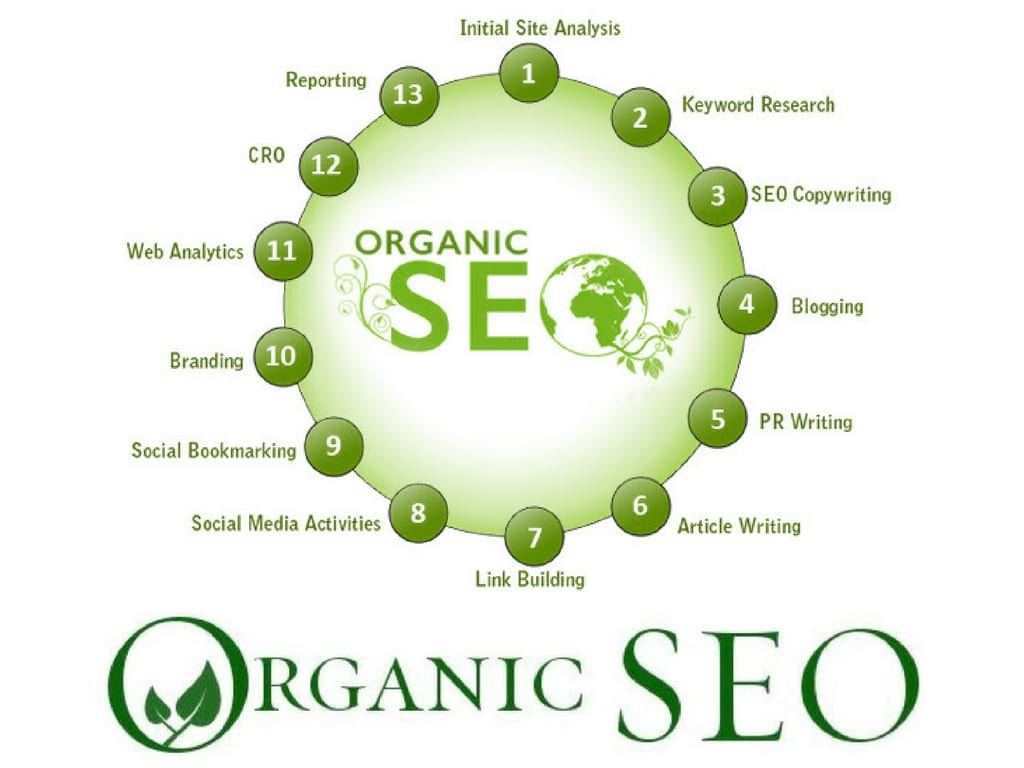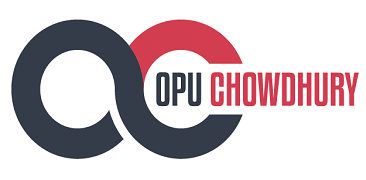Search Engine optimization or shortly known as SEO is a part of Digital Marketing. It is somewhat related to website development that helps to improve the ranking of a content by search engines in organic search results.
Search engine optimization or SEO is a methodology of strategies, procedures and tactics which are used to increase the amount of traffic on a website by obtaining a high-ranking engagement in the Search Engine Results Page (SERP) including Google, Bing, Yahoo and other search engines.
There is a misinterpretation about the concept of SEO. People mostly think that SEO is only for ranking content or website. But this method can be used for different kinds of search like image search, video search, news search, and industry-specific vertical search engines.
Table of Contents
History of Search Engine Optimization

The practice of Search Engine Optimization started in the mid-1990s. According to an industry analyst Danny Sullivan, the phrase “search engine optimization” probably came into use in 1997. Danny Sullivan stated Bruce Clay as one of the first people to popularise the term SEO.
In 2005, Google began personalizing search results for each user. Depending on the history of previous searches, Google constructed results for logged in users.
On May 2, 2007, a person named Jason Gambert attempted to trademark the term SEO by convincing the Trademark Office in Arizona that SEO is a “process” involving manipulation of keywords and not a “marketing service.”
On June 8, 2010, Google announced a new web indexing system called Google Caffeine. Its main objective is to allow the users to find content much sooner after publishing.
Google announced the Panda update in February 2011. This algorithm penalizes websites for containing duplicate content from other websites and sources.
Google Penguin is another Google algorithm update that was first announced on April 24, 2012. The aim of this algorithm is to punish and decrease the ranking of a website in SERP, which uses the Black-Hat SEO techniques.
Categories of Search Engine Optimization
Depending on the promotion of a website, Search Engine Optimization can be considered as two different kinds. They Are –
- Organic SEO
- Paid SEO
Depending on the techniques of execution, Search Engine Optimization can be classified into two different categories. They Are –
- White Hat SEO
- Black Hat SEO
Organic SEO

Organic SEO (search engine optimization) is the method of obtaining a natural placement on search engine results pages (SERPs). It is a free and natural ranking build up SEO. Some common but very effective techniques used for organic SEO include Keyword research, keyword analysis, link building to improve link popularity, and writing relevant content.
Organic SEO has two elements. They are –
On-Page Optimization
On-Page Optimization refers to a method that can optimize web pages in order to improve its rank in the SERP and produce more relevant traffic for the website. Some key aspects of on-page optimization are:
- Include well-researched keywords in appropriate density
- Include Meta tags, ALT tags, and H1 tags
- Place anchor text properly
- Include fresh, unique content
- Improve page loading speed
- Include a sitemap
- Optimize images and videos properly
Off-Page Optimization
Off-Page Optimization refers to all the actions that are done away from a website to raise the ranking of its page in the search engines result page. In simple words, Off-page SEO tells Google what others think about the website. Some key aspects of off-page optimization are:
- Submit the website to social bookmarking sites
- Post on online forums and niche related communities
- Write guest posts for related blogs
- Do follow and no follow linking
- The number of linking domains
- The number of linking pages
- Domain Authority of linking page
Paid SEO

The main difference between Organic SEO and Paid SEO is that traffic coming from Organic SEO is free while traffic generated from Paid SEO is not free. Paid SEO is a related term of Search Engine Marketing (SEM).
One of the common methods of Paid SEO is Pay-per-click (PPC). In a PPC campaign, advertisers pay a fee each time their ads are clicked. In simple words, it’s a way of buying traffic/visitors to a site rather than producing relevant traffic organically.
Pay-per-click is calculated by dividing the advertising cost by the number of clicks generated by an advertisement. The formula is:
Pay-per-click ($) = Advertising cost ($) ÷ Ads clicked (#)
White Hat SEO
In Search Engine Optimization, White Hat SEO refers to the techniques and optimization strategies which are in line with the SEO guidelines set by the search engines. That means this method maintains the integrity of a website and uses permitted SEO tactics to improve the ranking of a site on search engine results pages (SERP).
Black Hat SEO
Black Hat SEO is defined as the use of unethical SEO strategies, which are used to get higher search rankings by not obeying search engines guidelines. It is the opposite of White Hat SEO. This method targets the flaws in search engines to get higher rankings for a website on search engine results pages (SERP).

Difference between White Hat and Black Hat SEO
| White Hat SEO | Black Hat SEO |
| Works according to the search engine guidelines and improve search engine rankings. | Opposes the search engine guidelines and improve search engine rankings. |
| No chance of getting penalized or de-indexing from search engine result page. | This method can get a website banned, de-indexed or penalized by search engines. |
| It focuses mainly on the quality of content and provides relevant content to the users. | Content has the lowest value in this method and the quality of the content has no impact on search engine rankings. |
| This system emphasizes on use of keywords in title, meta tags and body of content. | Keyword stacking, keyword stuffing, hidden text, hidden links and blog spamming are some of the mostly used techniques. |
| It is safe and Suitable for a long-term venture. | It is risky and used for quick financial return. |
Search Engine Market Share Statistics
A report from NetMarketShare shows that Google has the largest search engine market share and is still the dominant search engine provider. With almost 80% of the search engine market share, Google is leading the way.
| SEARCH ENGINE | TOTAL MARKET SHARE |
| Google – Global | 79.45% |
| Bing | 7.31% |
| Baidu | 7.06% |
| Yahoo – Global | 4.91% |
| Ask – Global | 0.14% |
| AOL – Global | 0.05% |
| Excite – Global | 0.01% |
Influential Aspect of Search Engine Optimization
In the world of marketing and advertisement, internet has brought a revolutionary change. Now a day it is a must to take the business online. Having a website is the first requirement in order to take the business in the digital world.
When we are taking about website the term Search Engine optimization (SEO) appear before us, because SEO is regarded as the Heart of the website.
Search engines assist millions of users per day who are looking for answers to their questions or for solutions to their problems. If the method of SEO is implemented appropriately, it will help a business grow and meet the business objectives.
Some of the Influential Aspects of SEO are –
- It increases the Business Visibility and Branding.
- SEO is dominating the ad sector and has one of the best ROI’s in Advertising.
- It not only brings unlimited Traffic to Business but also gives an insight into the customers.
- Demographic-based targeting of customers is one of the core features of SEO.
- SEO brings credibility to the Business.
- Enhanced the visibility of a site in SERPs and helps the Business to grow rapidly.
- SEO provides barrier free Business growth and gives the chance to expanse businesses across industry verticals.
- With the help of internal linking and external linking, information can be exchanged.
- In the competitive marketing sector, SEO work as a solid foundation for the Business.
- Proper implementation of SEO tricks and adding Google AdSense to a website can be a great source of earning money.
The closure
Search Engine Optimization is a very sustainable marketing strategy that can bring a business more qualified leads and customers. A report from Mashable shows that Google gets over 100 billion searches a month.
This shows the importance of SEO because a good SEO strategy can drive more traffic to a website, blog or online store and gain more customers, make sales and fulfil the business purpose.
Finally, SEO is not a magic, it’s a marketing method that has to be implemented properly to get the best result.
Read more about: SEO Keywords: Definition, Importance, Execution

Opu Chowdhury is an experienced Digital Marketing and SEO Strategist in Bangladesh who possesses a wide range of skills, including expertise in Digital Marketing, SEO, Content writing, YouTube Marketing, Facebook Marketing, Website audit, etc. He can create effective strategies to optimize online presence and improve search engine rankings.





No Comments